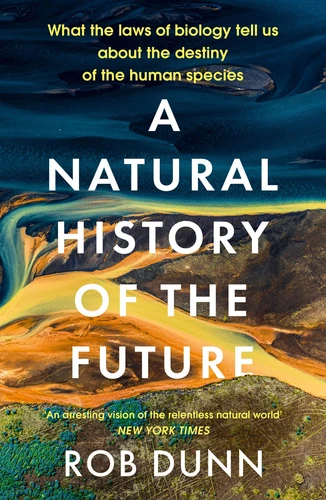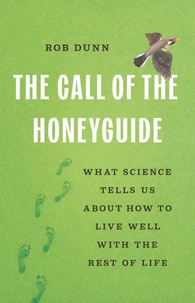A Natural History of the Future. What the Laws of Biology Tell Us About the Destiny of the Human Species
Par :Formats :
Disponible dans votre compte client Decitre ou Furet du Nord dès validation de votre commande. Le format ePub protégé est :
- Compatible avec une lecture sur My Vivlio (smartphone, tablette, ordinateur)
- Compatible avec une lecture sur liseuses Vivlio
- Pour les liseuses autres que Vivlio, vous devez utiliser le logiciel Adobe Digital Edition. Non compatible avec la lecture sur les liseuses Kindle, Remarkable et Sony
- Non compatible avec un achat hors France métropolitaine
 , qui est-ce ?
, qui est-ce ?Notre partenaire de plateforme de lecture numérique où vous retrouverez l'ensemble de vos ebooks gratuitement
Pour en savoir plus sur nos ebooks, consultez notre aide en ligne ici
- Nombre de pages320
- FormatePub
- ISBN978-1-3998-0015-0
- EAN9781399800150
- Date de parution19/01/2022
- Protection num.Adobe DRM
- Infos supplémentairesepub
- ÉditeurBasic Books
Résumé
Over the past century, our species has made unprecedented technological innovations with which we have sought to control nature. In A Natural History of the Future, biologist Rob Dunn argues that such efforts are futile. We may see ourselves as life's overlords, but we are instead at its mercy. In the evolution of antibiotic resistance, the power of natural selection to create biodiversity, and even the surprising life of the London Underground, Dunn finds laws of life that no human activity can annul.
When we create artificial islands of crops, dump toxic waste, or build communities, we provide new materials for old laws to shape. Life's future flourishing is not in question. Ours is. A Natural History of the Future sets a new standard for understanding the diversity and destiny of life itself.
When we create artificial islands of crops, dump toxic waste, or build communities, we provide new materials for old laws to shape. Life's future flourishing is not in question. Ours is. A Natural History of the Future sets a new standard for understanding the diversity and destiny of life itself.
Over the past century, our species has made unprecedented technological innovations with which we have sought to control nature. In A Natural History of the Future, biologist Rob Dunn argues that such efforts are futile. We may see ourselves as life's overlords, but we are instead at its mercy. In the evolution of antibiotic resistance, the power of natural selection to create biodiversity, and even the surprising life of the London Underground, Dunn finds laws of life that no human activity can annul.
When we create artificial islands of crops, dump toxic waste, or build communities, we provide new materials for old laws to shape. Life's future flourishing is not in question. Ours is. A Natural History of the Future sets a new standard for understanding the diversity and destiny of life itself.
When we create artificial islands of crops, dump toxic waste, or build communities, we provide new materials for old laws to shape. Life's future flourishing is not in question. Ours is. A Natural History of the Future sets a new standard for understanding the diversity and destiny of life itself.









